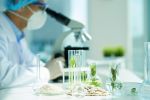Australian Research Highlights
We interrupt your regularly occurring ResearchMaster blog to talk about recent Australian research!
Speaking internationally, Australian universities tend to punch above their weight when it comes to research outputs: they consistently rank highly in OECD per capita outputs, above even other strongly performing systems across Europe and North America.
And so, every so often, we at the ResearchMaster blog like to take a break from writing about industry events or tech trends to celebrate Australian research. Accordingly, here’s a quick (and definitely not exhaustive!) round up of some fascinating research projects reported in Australia recently:
- Scientists at the University of New South Wales have found out how it’s possible to harness moisture in the air to make electricity, a discovery that has significant implications for green energy.
- Researchers at Charles Darwin University explored the impact of COVID-19 on child malnutrition in Malaysia and discovered that lifestyle factors mediated by the disease had become a substantial influence.
- Researchers at the University of Sydney, partnering with the University of Geneva, have developed a new anticoagulant, whose anti-clotting action can be rapidly stopped on demand, potentially providing a more sensitive intervention in clinical settings.
- Biomedical research at James Cook University is attempting to operationalise a flu vaccine with broader coverage than the current standard, which would be a huge victory for preventative medicine—there are around a billion cases of the flu annually, and the disease is responsible for up to 650,000 deaths annually.
- Scientists at Curtin University explored the link between photography and nutrition assessment by comparing people’s estimates of their nutritional intake when they had, or had not, snapped a photo of their food. People knew their nutritional intake better when they’d photographed their food — which suggests there could be a purpose to the food photography that plagues our social media feeds.
- The University of Newcastle has teamed up with Australian National University to discover the mechanism by which plants can consume even more carbon, with fascinating implications for climate-resilient crops.
- A team at the University of Queensland has discovered a potential neuropathological mechanism behind the symptoms of long COVID, a breakthrough which could lead to improved treatment for the millions affected.
From using radio waves to invent wireless networking technology, to discovering the bacterial culprit behind stomach ulcers, Australia’s research contributions to global wellbeing are well-known.
Who knows where the next project might lead?
ResearchMaster empowers Australian researchers to make changes that matter. Find out more.

